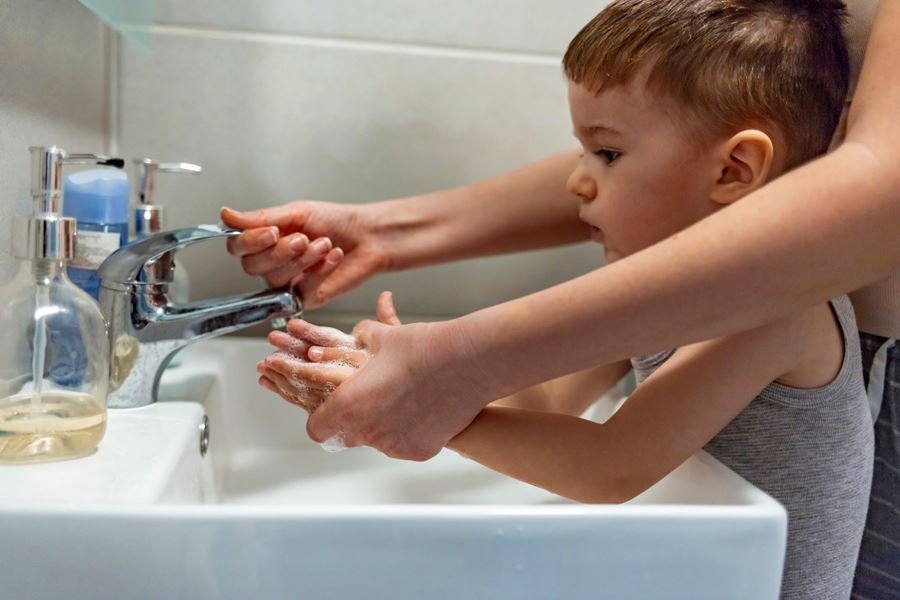What are surfactants?
Yes, what exactly are surfactants? Or surface-active agents as they are also called. Well, it is a group of substances that reduce the surface tension between fat and water so that they can mix. They allow water to "absorb" grease and dirt and wash it away.

The surfactants are what make your laundry, dishes, home and body clean. They "encapsulate" the dirt and then wash away with the water. Surfactants come in many different varieties and are used in detergents, cleaning agents, dishwashing liquids, shampoos, soaps... That is, in products that are supposed to dissolve grease and dirt and make you and your home clean.
Dose correctly!
It is important to dose correctly. Overdosing doesn't make your laundry, dishes, or hair cleaner. Follow the dosage instructions on the package. This reduces unnecessary use of chemicals while saving both the environment and money.
What is problematic?
There are different types of surfactants, with different properties, that are used for different things. Some surfactants are toxic to aquatic organisms. This means that they can harm fish and other aquatic animals if they end up in lakes and streams.
Other surfactants can be irritating to our mucous membranes. A common surfactant in cosmetic products is SLS (sodium lauryl sulfate). SLS can be irritating to the mucous membranes.
Certain groups of surfactants, such as alkylphenol ethoxylates (APEO), are both difficult to degrade in nature and have shown endocrine-disrupting properties. They have been phased out of many products by legislation, but the Nordic Swan Ecolabel makes it extra clear that they may not be used by specifically prohibiting them in our criteria relating to products where they may be used.
Still other surfactants may have other limitations and uses. It is important to find the right surfactant for the right area of use, so that a product can do its job in the right way.
What does the Nordic Swan Ecolabel think of surfactants?
The Nordic Swan Ecolabel adheres to the precautionary principle. This means that, where there is not enough information about how a substance affects humans and the environment, we would rather exclude it than allow it. There is a lot of research for surfactants in particular, and in Nordic Swan Ecolabelled products, some surfactants are allowed while others are banned.
For example, SLS is not allowed to be used in Nordic Swan Ecolabelled toothpaste because it can irritate the mucous membranes. As a rule, the Nordic Swan Ecolabel allows surfactants that are degraded in nature (aerobically and anaerobicly degradable – in oxygen-rich and oxygen-poor environments). This means that if they end up in nature, they decompose.
So to sum up, without the cleansing function of surfactants, cleaning products, whether shampoo or detergent, cannot do their job. But it is important to have the right surfactant in the right place. And not to overdose!